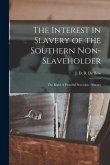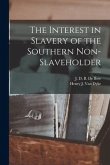From 1917 on, Feder studied financial politics and economics on his own after developing a hostility towards wealthy bankers during World War I and wrote a "manifesto on breaking the shackles of interest" ("Brechung der Zinsknechtschaft") in 1919. This was soon followed by the founding of a "task force" dedicated to those goals that demanded a nationalisation of all banks and an abolition of interest. Feder proposes ideas and solutions to problems which not only affected Germany at the time but could apply to any nation today. Originally published in 1919, this translated manifesto is a must read for anyone interested in history or economics.
Hinweis: Dieser Artikel kann nur an eine deutsche Lieferadresse ausgeliefert werden.
Hinweis: Dieser Artikel kann nur an eine deutsche Lieferadresse ausgeliefert werden.








